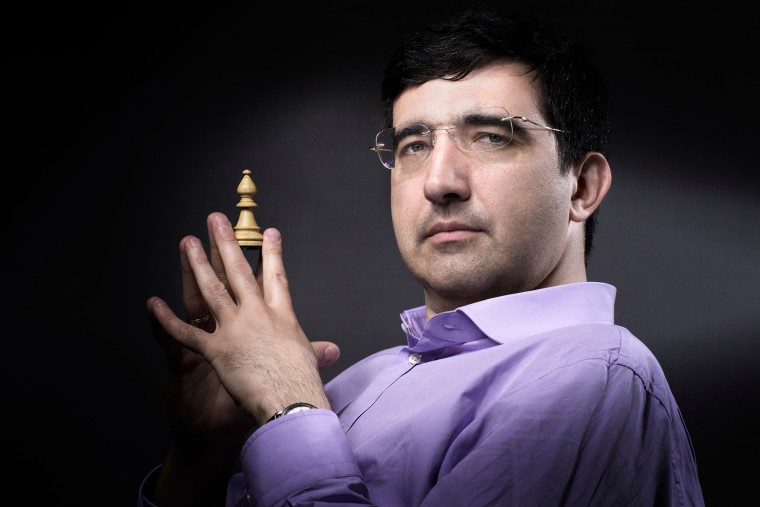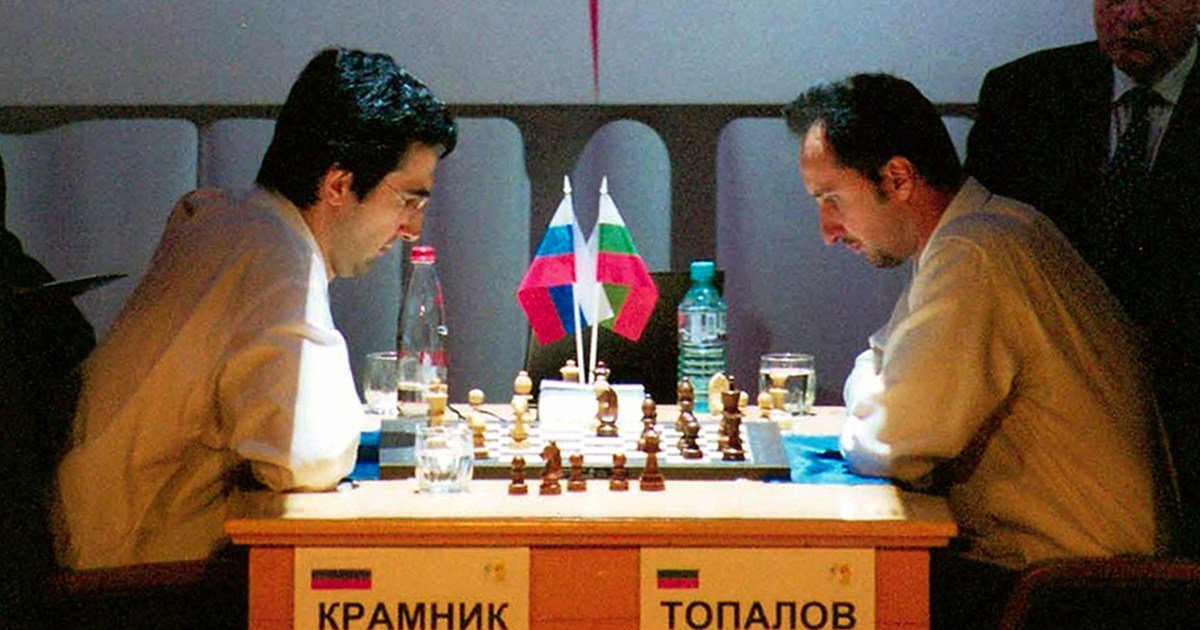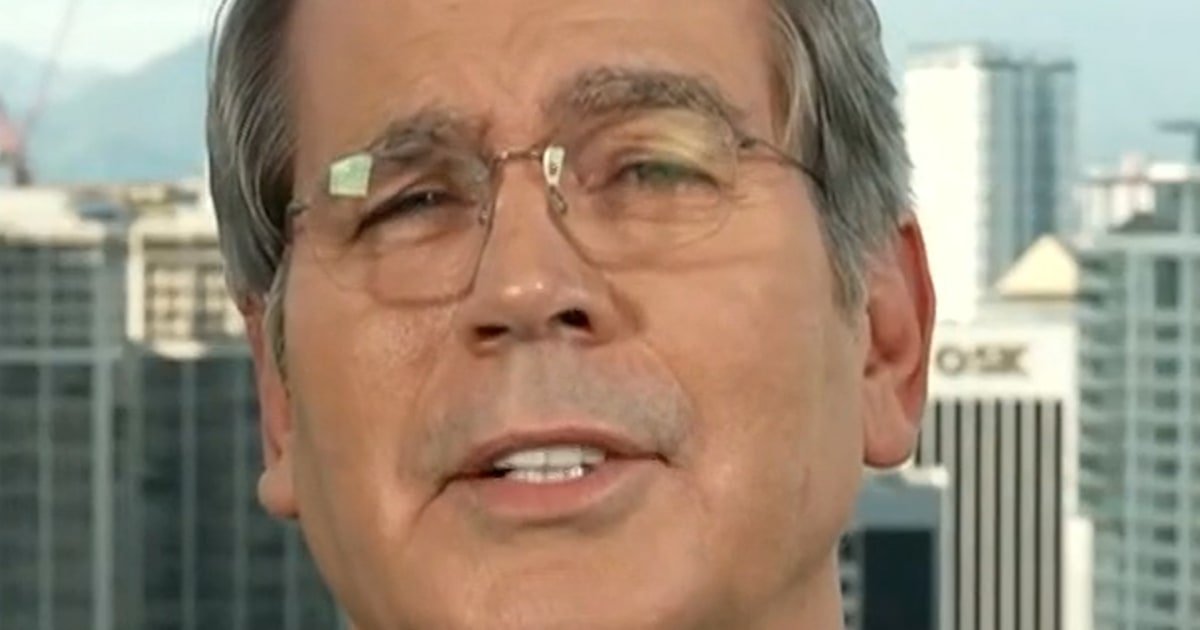The Russian chess master accused by his peers of bullying Daniel Naroditsky, the American grandmaster who was found dead last week, has been hit by unfounded cheating accusations in the past: a 2006 chess scandal that came to be known as “Toiletgate.”
The manager of Vladimir Kramnik’s opponent in that title fight, Veselin Topalov, claimed that the Russian was using the bathroom up to 50 times a game to surreptitiously look up chess moves on a computer, an allegation that Kramnik’s manager vehemently denied.
“It should also be mentioned that Mr. Kramnik has to drink a lot of water during the games” and likes to walk around in the bathroom, added Carsten Hansel, according to press reports.
Kramnik eventually won the match and became the undisputed world chess champion, but only after accepting the demands of the World Chess Federation (FIDE) to use the same bathroom as his opponent. It was a concession that Kramnik initially protested with a sit-in near the bathroom, which caused him to lose one of the games of the match.
Topalov and his manager were subsequently sanctioned by the FIDE Ethics Commission for “making unfounded accusations of cheating.”
Kramnik, responding to a request from NBC News to comment on the renewed interest in “Toiletgate,” said in an email Friday: “Having always played fair throughout my career, this insinuation didn’t bother me much, I took it quite lightly.”
Since Kramnik had repeatedly suggested that Naroditsky had cheated, his own brush with what turned out to be apparently unfounded accusations resurfaced this week in the wake of Naroditsky’s death. The cause of Naroditsky’s death has not been announced.
“It’s a little ironic that someone like Kramnik, who had been accused of cheating, would then turn around and accuse someone else of cheating,” Erik Allebest, CEO of Chess.com, the world’s largest chess platform, said Friday.
Young chess champion found dead
Naroditsky, 29, was found dead Sunday in his home in Charlotte, North Carolina. Police said Thursday they were investigating his death as a possible suicide or drug overdose.
FIDE said it would investigate whether Kramnik should be disciplined for derogatory public statements he made “before and after the tragic death” of Naroditsky.
During his final live broadcast on Saturday, Naroditsky told his audience that cheating allegations from Kramnik, whom he once idolized, had taken a toll on him.
“Since Kramnik, I feel like if I start doing well, people assume the worst intentions,” he said.
Chess.com banned Kramnik in 2023 from participating in prize tournaments after he accused several players of cheating, Allebest said.
Kramnik has claimed to be “the subject of a public relations campaign of intimidation and defamation” as well as ongoing threats against him and his family since Monday. That’s when the Charlotte Chess Center in North Carolina, where Naroditsky trained and worked as a coach, announced on social media that he had died.
The Russian also denied intimidating Naroditsky and said in an email on Friday that his lawyers were “preparing a major case against all media outlets that publish this false information.”
Do chess players cheat?
Allebest acknowledged that there are cheats in competitive chess.
“It’s just a human thing and it’s the same with any sport,” he said. “For some, the reward of winning outweighs the cost to their conscience. For others, it is monetary, although it is rare for the prize money to be so large.”
Among other things, Chess.com hosts weekly online cash games in which players can take home up to $3,000.
“It’s not a lot of money,” Allebest said. “More often than not, players will cheat to gain notoriety, increase their streaming audience, climb the rankings, and become famous by playing against top players. It’s a matter of perception.”
These parties, he stated, are also closely followed.
“For players competing in prize money matches, we have a monitoring program called Proctor that they download that keeps track of what’s happening on their computers,” Allebest said. “We have front and rear cameras to monitor the players.”
Now that so much chess is played online, cheating methods have also gone digital.
“They will use computer algorithms to determine the best play, they will have a second program running on your computer while the game is being played,” he said. “Sometimes they have someone sitting next to them with an iPad looking for the best moves.”
That’s why Chess.com looks for red flags.
“We have statistical models that help us identify potential cheaters,” Allebest said. “For example, if a new player signs up and suddenly starts winning a lot of games in a row, or their ranking starts to rise rapidly, or if we detect other factors that we cannot disclose, we will investigate it.”
In its most recent “Fair Play Update” from September, Chess.com reported that 125,000 accounts were “closed for cheating.”
“Painful” accusations
As of October 2024, Kramnik publicly accused Naroditsky of cheating in online chess, suggesting that his near-perfect play was “statistically impossible.”
Allebest said statistics don’t always tell the whole story.

“What is often forgotten is that, in statistics, lightning sometimes strikes twice,” Allebest said. “When 20 million games are played every day, a one in a million chance occurs every day. Some players, especially the old guard who didn’t grow up playing chess online, often find that difficult to understand.”
Allebest said he understands why Naroditsky, a child prodigy, might have been dejected by the accusations leveled against him by a world-renowned player like Kramnik.
“It’s painful for players like Danya to be accused of cheating because since they were young they put in hours and hours and hours of work,” he said, referring to Naroditsky by his nickname. “For some, all that is thrown away with an accusation. For players who see chess as something sacred, it hurts their souls.”








